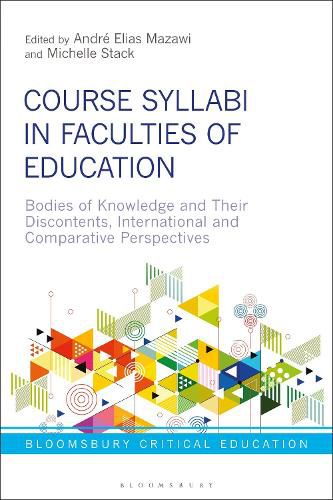Readings Newsletter
Become a Readings Member to make your shopping experience even easier.
Sign in or sign up for free!
You’re not far away from qualifying for FREE standard shipping within Australia
You’ve qualified for FREE standard shipping within Australia
The cart is loading…






Course Syllabi in Faculties of Education problematizes one of the least researched phenomena in teacher education, the design of course syllabi, using critical and decolonial approaches. This book looks at the struggles that scholars, policy makers, and educators from a diverse range of countries including Australia, Canada, India, Iran, Palestine, Qatar, Saudi Arabia, the USA, and Zambia face as they design course syllabi in higher education settings. The chapter authors argue that course syllabi are political constructions, representing intense sites of struggles over visions of teacher education and visions of society. As such, they are deeply immersed in what Walter Mignolo calls the geopolitics of knowledge . Authors also show how syllabi have become akin to contractual documents that define relations between instructors and students Based on a set of empirically grounded studies that are compared and contrasted, the chapters offer a clearer picture of how course syllabi function within distinct socio-political, economic, and historical contexts of practice and teacher education.
$9.00 standard shipping within Australia
FREE standard shipping within Australia for orders over $100.00
Express & International shipping calculated at checkout
Course Syllabi in Faculties of Education problematizes one of the least researched phenomena in teacher education, the design of course syllabi, using critical and decolonial approaches. This book looks at the struggles that scholars, policy makers, and educators from a diverse range of countries including Australia, Canada, India, Iran, Palestine, Qatar, Saudi Arabia, the USA, and Zambia face as they design course syllabi in higher education settings. The chapter authors argue that course syllabi are political constructions, representing intense sites of struggles over visions of teacher education and visions of society. As such, they are deeply immersed in what Walter Mignolo calls the geopolitics of knowledge . Authors also show how syllabi have become akin to contractual documents that define relations between instructors and students Based on a set of empirically grounded studies that are compared and contrasted, the chapters offer a clearer picture of how course syllabi function within distinct socio-political, economic, and historical contexts of practice and teacher education.